Up to 1,000 times faster than traditional CPUs!
Codenamed ‘Pohoiki Beach,’ the new chip processes data like a biological brain by simulating a whole network of neurons, allowing the silicon to process information ‘up to 1,000 times faster.’
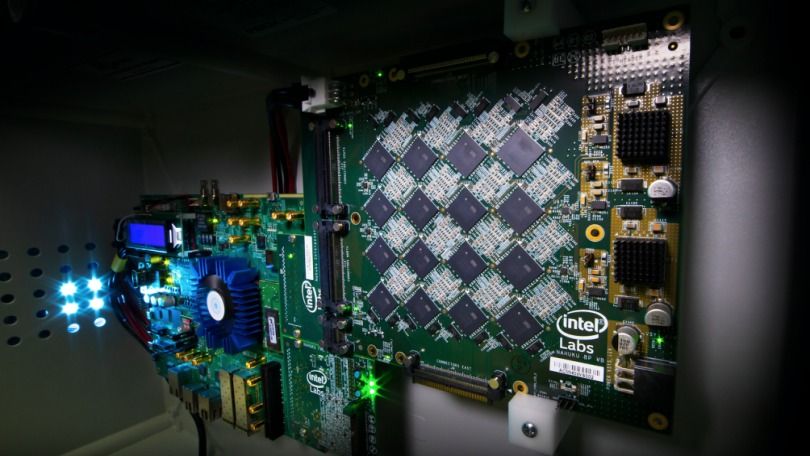

Circa 2016 o.o
Americans dump 251 million tons of trash annually into landfills. Bike seat ripped? Toss it. Hole in the old garden hose? Get rid of it. Spandex not tucking in your tummy? Loose it and replace it. This linear process of extracting a resource, processing it, selling it than discarding it is creating a mound of trash dangerously equivocal to the ball of trash in Futurama episode 8 season 1.
Why Plastic Sucks
Bike seats, garden hoses and spandex are all comprised of polyurethane, the most common and environmentally destructive plastic. The Newsweek article, Plastic-Eating Fungi That Could Solve Our Garbage Problem, notes that the only way to get rid of polyurethane is incarceration, which releases harmful gases into our ecosystem. If plastic is left abandoned in the landfill or ocean, Ultraviolet light from the sun or waves break down the material into harmful microplastic particles. In the ocean, this broken down plastic first poisons the marine life then the people who consumed it. The process of breaking down such materials in landfills emits methane, a green house gas 23 times more potent than CO2, according to the Modern Farm article, Plastic-Eating Mushrooms Could Save the World. Additionally, per the Newsweek article, David Schwatzman, Proffessor of Biology at Howard University remarks,” Landfills are sources of serious problems.
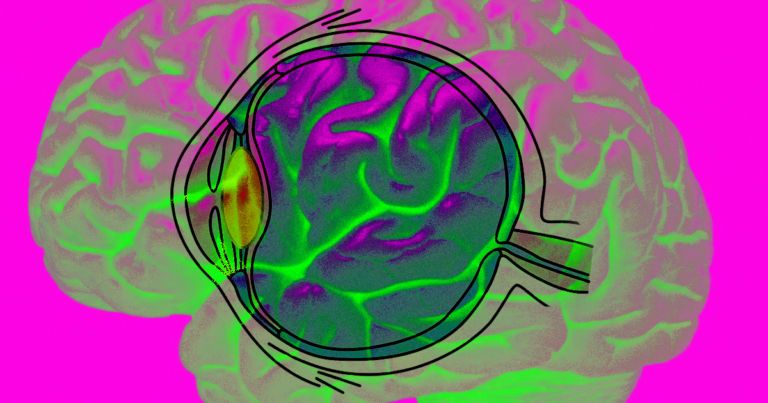
Bernardeta Gómez has been blind for 16 years. But using a bionic eye developed by Spanish neuroengineer Eduardo Fernandez, she was able to see again — without using her biological eyes at all.
The system, which Fernandez is honing at his University of Miguel Hernandez lab, comprises a few different parts, as detailed in a newly-published story in MIT Technology Review.
First, there’s a pair of glasses fitted with a camera that connects to a computer. The computer translates the camera’s live video feed into electronic signals. Those signals are then sent via a cable to a port that Fernandez surgically embedded in the back of Gómez’s skull. That port connects to an implant in the visual cortex of Gómez’s brain.
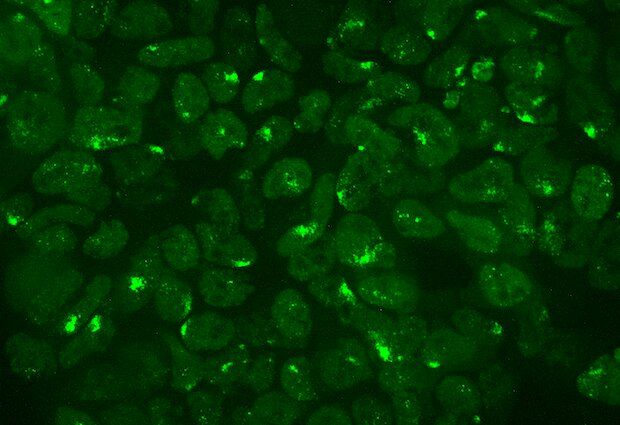
Researchers at the European Molecular Biology Laboratory (EMBL) in Heidelberg and Institut Curie in Paris have shown that the protein SPEN plays a crucial role in the process of X-chromosome inactivation, whereby female mammalian embryos silence gene expression on one of their two X chromosomes.
In their landmark research published in Nature on 5 February, the scientists reveal how SPEN targets and silences active genes on the X chromosome, providing important new insights into the molecular basis of X-inactivation.
In mammals, males and females differ genetically in their sex chromosomes—XX in females and XY in males. This leads to a potential imbalance, as more than a thousand genes on the X chromosome would be expressed in a double dose in females compared to males. To avoid this imbalance, which has been shown to lead to early embryonic lethality, female embryos shut down the expression of genes on one of their two X chromosomes.
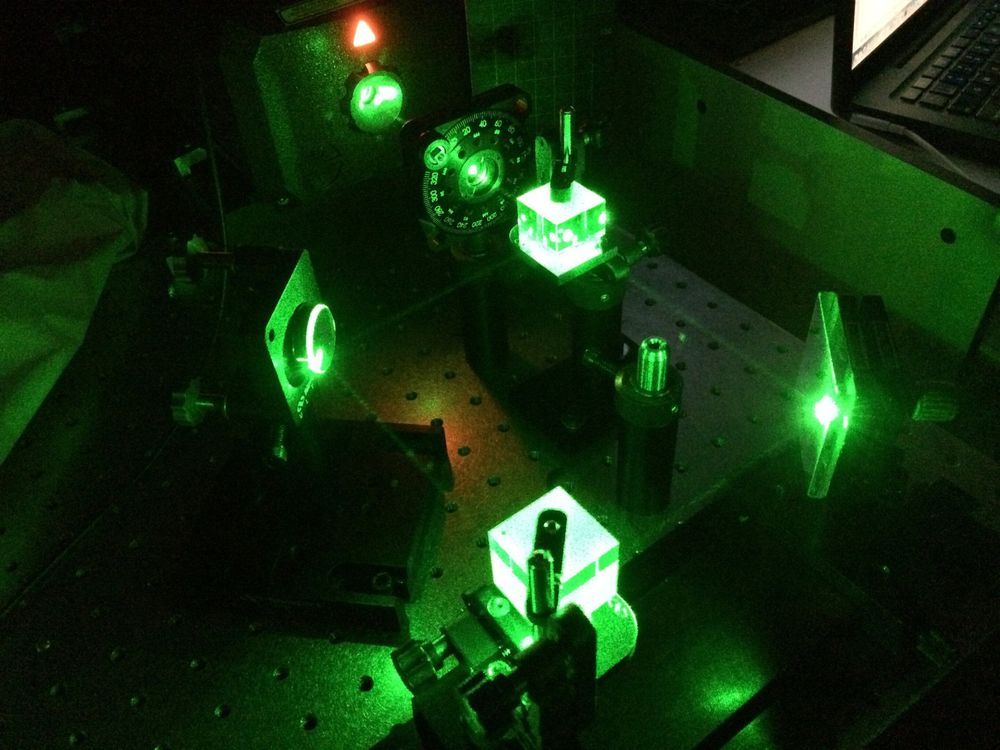
A collaboration between McMaster and Harvard researchers has generated a new platform in which light beams communicate with one another through solid matter, establishing the foundation to explore a new form of computing.
Their work is described in a paper published today in the Proceedings of the National Academy of Sciences.
Kalaichelvi Saravanamuttu, an associate professor of Chemistry and Chemical Biology at McMaster, explains that the technology brings together a form of hyrdrogel developed by the Harvard team with light manipulation and measurement techniques performed in her lab, which specializes in the chemistry of materials that respond to light.

O.o.
While eating takeout one day, University of Chicago scientists Bozhi Tian and Yin Fang started thinking about the noodles—specifically, their elasticity. A specialty of Xi’an, Tian’s hometown in China, is wheat noodles stretched by hand until they become chewy—strong and elastic. Why, the two materials scientists wondered, didn’t they get thin and weak instead?
They started experimenting, ordering pounds and pounds of noodles from the restaurant. “They got very suspicious,” Fang said. “I think they thought we wanted to steal their secrets to open a rival restaurant.”
But what they were preparing was a recipe for synthetic tissue—that could much more closely mimic biological skin and tissue than existing technology.
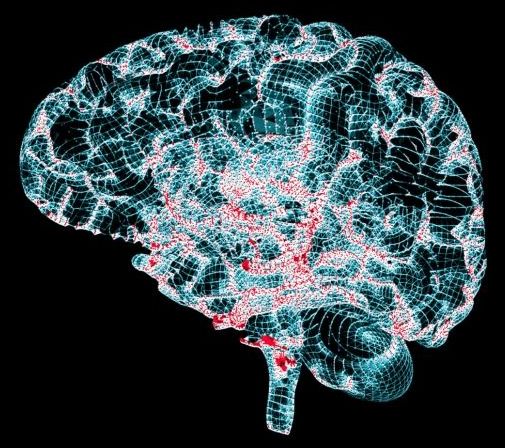
Experiences early in life have an impact on the brain’s biological and functional development, shows a new study by a team of neuroscientists. Its findings, which centered on changes in mice and rats, reveal how learning and memory abilities may vary, depending on the nature of individual experiences in early life.
“The implications of this are many, including environmental influences on mental health, the role of education, the significance of poverty, and the impact of social settings,” says Cristina Alberini, a professor in New York University’s Center for Neural Science and the senior author of the paper, which appears in the journal Nature Communications.
“These results also offer promise for potential therapeutic interventions,” add Alberini and Benjamin Bessières, an NYU postdoctoral researcher and the paper’s co-lead author. “By identifying critical time periods for brain development, they provide an indicator of when pharmaceutical, behavioral or other type of interventions may be most beneficial.”
